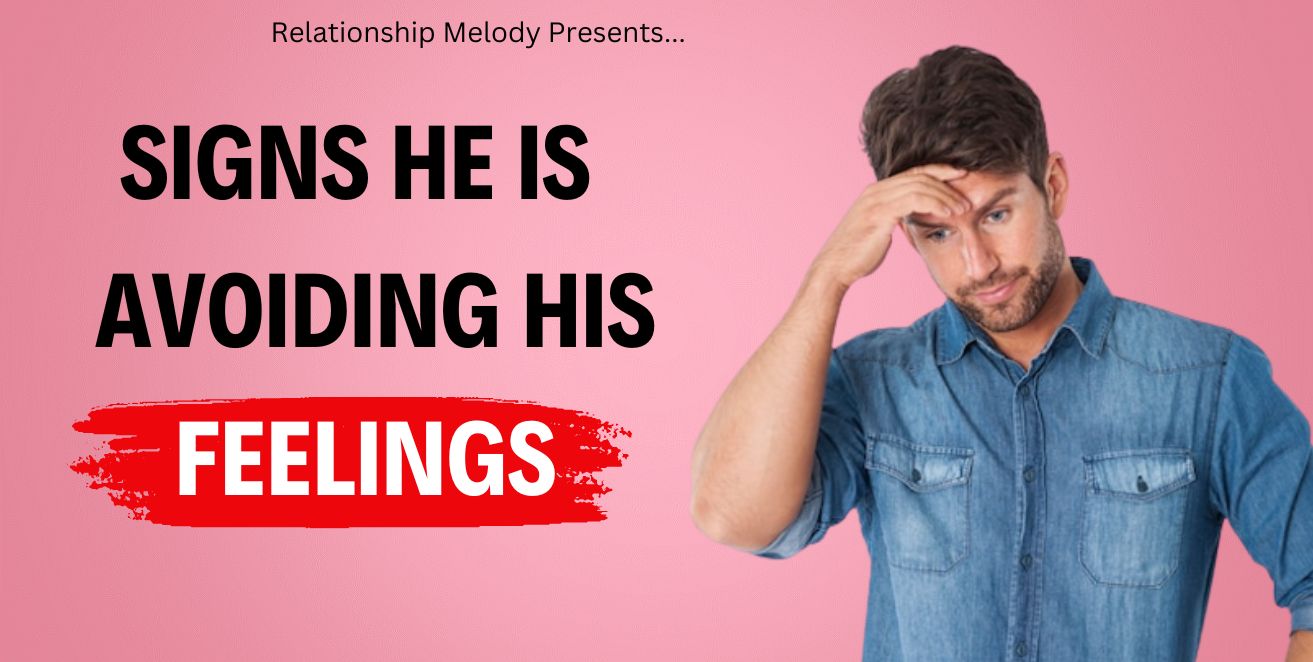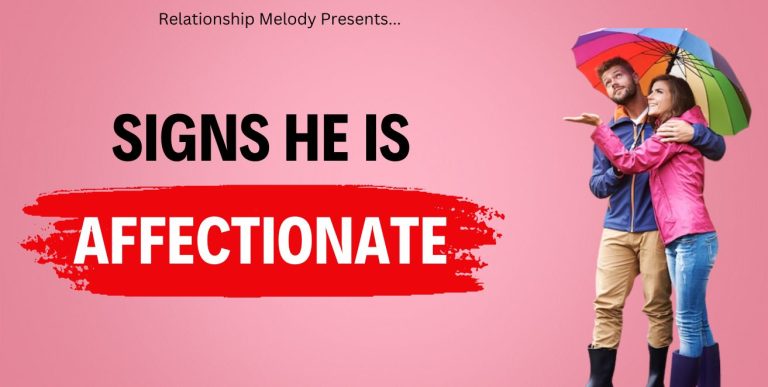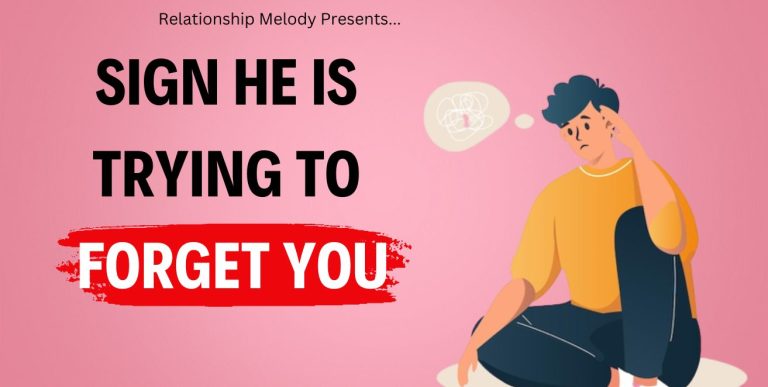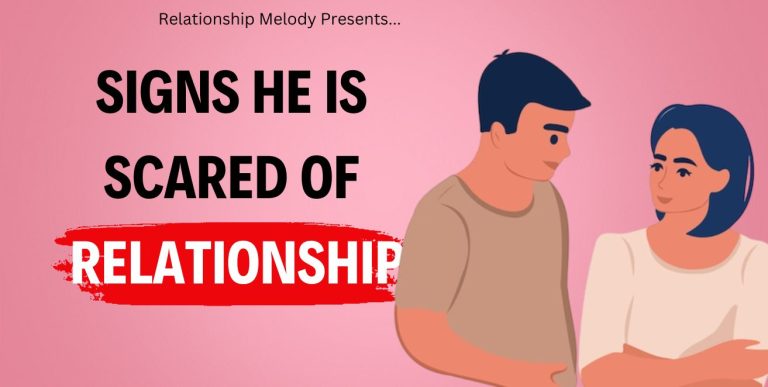25 Signs He Is Avoiding His Feelings
Are you suspecting that someone you know may be avoiding their feelings? Whether it’s a close friend, a family member, or even a potential romantic partner, recognizing the signs of emotional avoidance can help you better understand their behavior and provide support.
In this blog post, we’ll explore 25 common signs that someone might be avoiding their feelings. By familiarizing yourself with these indicators, you can offer empathy and assistance when needed.
25 Signs He Is Avoiding His Feelings
These are 25 signs to know.
#1 Lack of Vulnerability:
When someone is avoiding their feelings, they tend to keep their guard up and avoid opening up about their fears, insecurities, or deepest thoughts.
This guarded demeanor prevents them from being emotionally vulnerable with others, hindering the development of deep emotional connections.
#2 Emotional Distance:
Individuals who avoid their feelings often maintain emotional distance in their relationships. They keep conversations superficial, steering clear of topics that delve into personal or sensitive matters.
This emotional detachment serves as a protective mechanism, preventing them from becoming too invested or vulnerable.
#3 Deflecting Emotions:
When emotions arise, individuals who avoid their feelings tend to quickly change the subject or redirect the conversation. By doing so, they divert attention away from their own emotions, avoiding introspection and potentially uncomfortable discussions.
#4 Noncommittal Behavior:
Those who avoid their feelings may struggle with committing to plans or long-term commitments.
They prefer to keep their options open and maintain emotional distance to protect themselves from potential emotional investment and its associated risks.
#5 Difficulty Expressing Love:
Expressing affection and saying “I love you” can be uncomfortable or challenging for individuals who are avoiding their feelings. They may struggle to openly express love and affection, fearing vulnerability and the emotional connection that comes with it.
#6 Escaping Through Humor:
Humor can be used as a defense mechanism by individuals to avoid their emotions. They use jokes, sarcasm, or deflective humor to steer conversations away from serious or emotional topics, creating a barrier that shields them from engaging with their feelings.
#7 Constant Busyness:
Keeping oneself perpetually busy is another sign of avoiding feelings. By filling up their schedule with endless activities, individuals can avoid introspection and emotional self-reflection.
This constant busyness acts as a distraction, preventing them from confronting and processing their emotions.
#8 Ignoring Conflict:
Individuals who avoid their feelings often brush off conflicts or disagreements, opting for peacekeeping rather than addressing the underlying emotional issues.
They may avoid confrontation or emotional discomfort by minimizing the importance of conflicts and avoiding resolution.
#9 Inconsistent Communication:
Inconsistent communication patterns, such as going silent for extended periods or responding with short, vague messages, can indicate a person’s avoidance of their emotions.
This sporadic communication style allows them to create distance and avoid deeper emotional connections and discussions.
#10 Emotional Withholding:
Those who avoid their feelings often withhold empathy and emotional support from others. They struggle to offer comfort or connect with others on an emotional level, as they also keep their own emotions tightly guarded and inaccessible.
#11 Rationalizing Feelings:
Individuals who avoid their emotions may rely heavily on logical reasoning and intellectualizing their feelings. They may attempt to suppress or dismiss their emotions by analyzing them from a logical standpoint, detaching themselves from the raw emotional experience.
#12 Emotional Indifference:
A lack of emotional response or apparent disinterest in significant life events or milestones can be indicative of emotional avoidance.
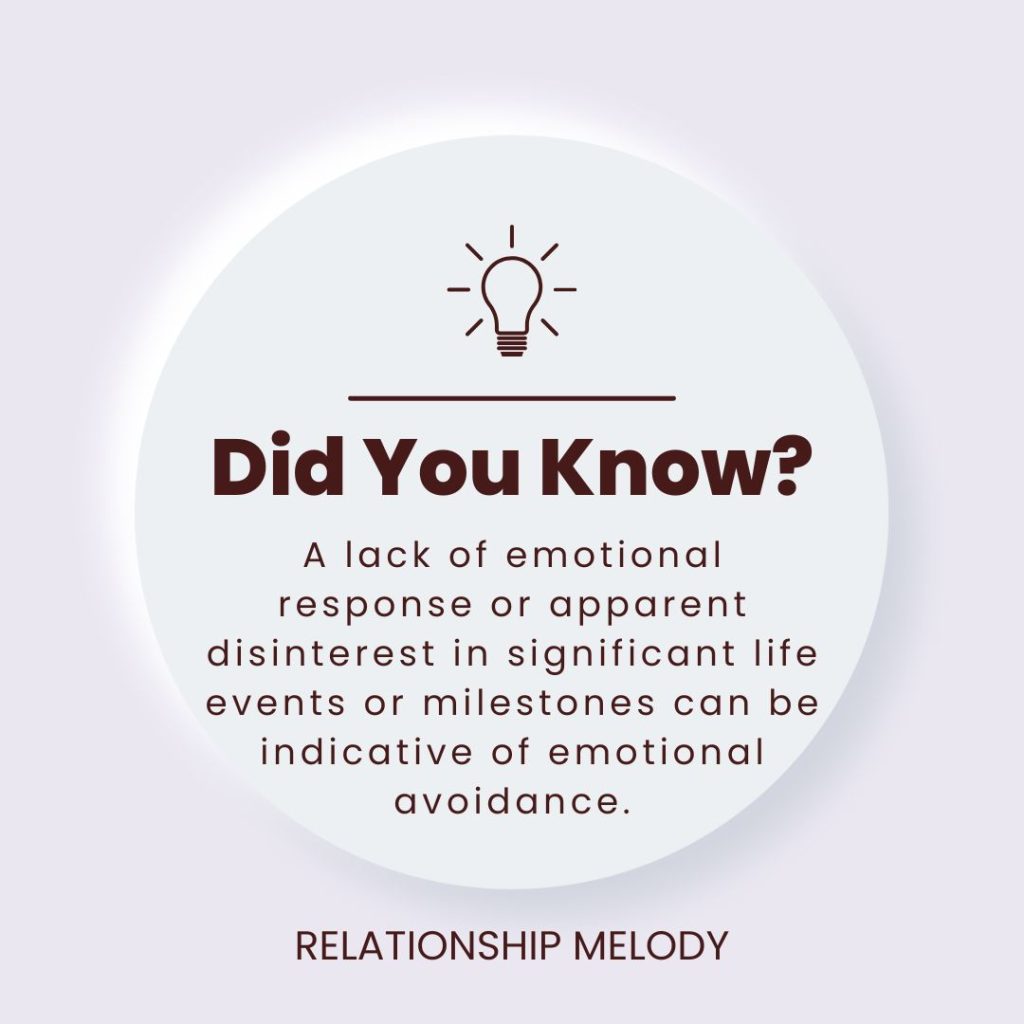
People who exhibit emotional indifference may detach themselves emotionally from situations to protect themselves from vulnerability or potential emotional pain.
#13 Dismissive of Emotional Topics:
Those avoiding their feelings often downplay the significance of emotional discussions, dismissing them as unnecessary or unimportant. By diminishing the importance of emotional topics, they can avoid engaging with their own emotions and the potential discomfort they bring.
#14 Overemphasis on Logic:
Individuals who avoid their emotions may prioritize logical reasoning and analytical thinking over the emotional connection. They rely heavily on facts and analysis to navigate situations, suppressing or disregarding the emotional component.
#15 Seeking Distractions:
Engaging in excessive work, hobbies, or entertainment can serve as a way to avoid facing deeper emotions. By constantly seeking distractions, individuals can evade introspection and suppress their feelings, keeping them at bay.
#16 Avoidance of Intimacy:
Those avoiding their feelings often shy away from both physical and emotional intimacy. They may create physical barriers or emotional distance to protect themselves from vulnerability and potential emotional pain.
#17 Minimal Eye Contact:
Individuals avoiding their feelings may struggle to make sustained eye contact during conversations. Eye contact fosters emotional connection, and by avoiding it, they create a barrier that prevents a deeper emotional bond from forming.
#18 Fear of Rejection:
The fear of rejection or abandonment is a common trait among those avoiding their feelings. This fear drives them to avoid situations that might expose them to emotional risk, keeping their emotions guarded and protected.
#19 Emotional Numbness:
Individuals who avoid their feelings may exhibit a lack of emotional responsiveness. They may appear emotionally numb or detached, not fully experiencing or expressing emotions, both positive and negative.
#20 Unresolved Past Trauma:
Avoiding past emotional wounds or traumas is another sign of emotional avoidance. Individuals may suppress or avoid addressing these painful experiences, preventing emotional healing and closure.
#21 Unpredictable Mood Swings:
Frequent and erratic mood swings can be an indication of emotional avoidance. The inability to regulate emotions and the volatility of mood can stem from unresolved feelings and avoidance of emotional processing.
#22 Reluctance to Apologize:
Those who avoid their feelings may find it challenging to apologize or admit when they’re wrong. Apologizing requires acknowledging vulnerability and accepting responsibility, which can be uncomfortable for someone actively avoiding their emotions.
#23 Excessive Self-Reliance:
A strong preference for self-reliance, even when help or support is needed, can be a sign of emotional avoidance. By relying solely on themselves, individuals can avoid depending on others and potentially exposing their emotions.
#24 Disinterest in Emotional Growth:
Individuals who avoid their feelings may exhibit little interest in personal development or emotional growth. They may resist introspection and avoid engaging in activities that promote emotional self-awareness and growth.
#25 Avoidance of Labels:
People who avoid their feelings often steer clear of labeling relationships or defining their nature. By avoiding labels, they can maintain emotional distance and avoid the commitment and vulnerability that come with clear emotional attachment.
Learn more: 25 Signs He Is Avoiding You.
Conclusion:
Recognizing the signs of emotional avoidance in someone can be challenging, but by being observant and understanding, you can provide valuable support.
Remember that everyone copes with emotions differently, and it’s crucial to approach these situations with empathy and non-judgment.
If you suspect someone is avoiding their feelings, gently encourage open communication, offer a safe space for them to express themselves, and consider suggesting professional help if needed.
Above all, be patient and understanding as they navigate their emotional journey. By being there for them, you can help them confront their feelings and find healthier ways to cope, ultimately fostering personal growth and emotional well-being.
Liked Our Article?
Our Patreon link: https://www.patreon.com/RelationshipMelody

Welcome to Relationship Melody! Our website is dedicated to all things on relationships, dating, and love! We are passionate about helping you navigate the ups and downs of love, and our goal is to provide you with valuable insights and information that will make your journey toward a fulfilling relationship smoother and more enjoyable.

